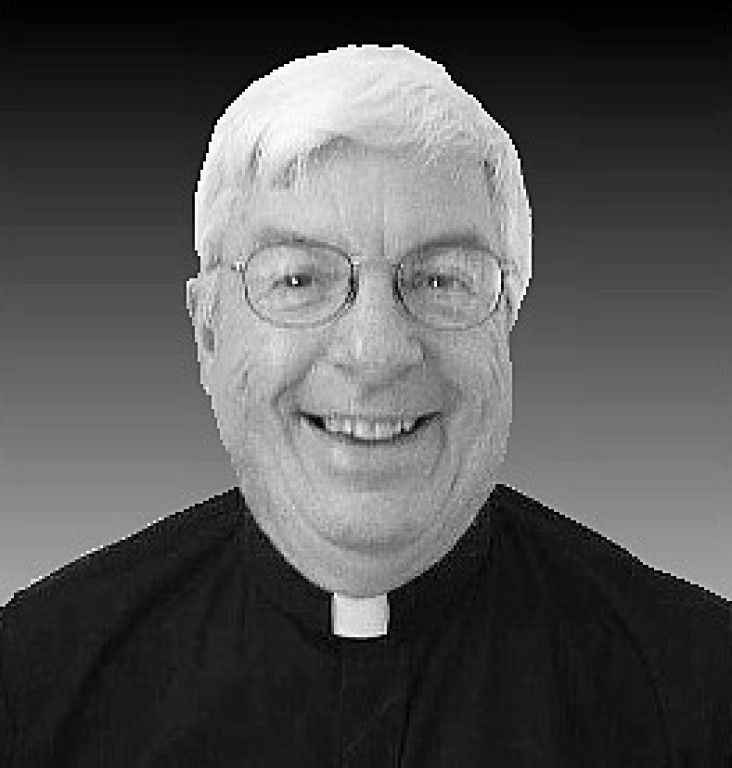
No Cowardly Spirit
Homily for the Solemnity of Pentecost May 31, 2020
This week we celebrate the Solemnity of Pentecost, the day that commemorates the dramatic gift of the Holy Spirit to the first believers—a day that is also considered the birthday of the church. To begin our reflection I have a favorite story that teaches about the power of the Spirit. A do-it-yourselfer went into a hardwa...re store and asked about a new saw for cutting firewood. The salesman took a chain saw from the shelf and told him it was the newest model, with the latest in technology, guaranteed to cut ten cords of wood a day. The customer thought that sounded great, so he bought it on the spot. The next day the customer returned, looking somewhat exhausted. “Something must be wrong with this saw,” he moaned. “I worked as hard as I could and only managed to cut five cords of firewood. I used to cut seven with my old saw. Confused, the salesman said, “Here, let me try it out back on some wood we keep there. They went to the wood pile, the salesman pulled the starter cord, and as the motor went vroom, the customer jumped back shouting, “What’s that noise?” The customer trying to saw wood without the power of the saw to help him is very much like the believer who attempts to live the Christian life without the daily empowerment of the Holy Spirit. When I was in the seminary studying for the priesthood, there was a homily that I remember to this day. It focused on the wise advice contained in Psalm 127: Unless the Lord build the house, they labor in vain who build it. Unless the Lord guard the city, in vain does the guard keep vigil. It is vain for you to rise early or put off your rest, You that eat hard-earned bread, for he gives to his beloved in sleep. Now, let me share another story that provides a bit of balance to the psalm, lest we misunderstand its message. A student, rather lazily inclined, noticed that a classmate always did well in her Spanish lessons. One day he asked her, “How is it that you always recite your lessons so perfectly?” “Before I study,” she told him, “I always pray that I may remember my lessons and repeat them well.” “Do you?” said the boy, somewhat surprised. “So that’s her secret method,” he thought. “Well, then, I’ll pray too.” That night he prayed up a storm, recalling as many prayers as he could remember. However, the next day he could not even repeat one phrase of the lesson. Quite perplexed, he looked for his friend and, finding her, confronted her for being deceitful. “I prayed,” he told her, “but I could not repeat a single phrase from yesterday’s homework.” “Perhaps,” she told him, “you took no pains to learn the lesson!” “Of course not,” said the boy. “I didn’t study at all. I had no reason to study. You told me to pray that I might remember the lesson.” “There’s your problem,” she said, “I told you I prayed before, not instead of, studying.” Now, let’s take a look at the pertinent scripture passages. In the Acts of the Apostles the author states that for forty days after his resurrection, Jesus appeared to the apostles and in convincing ways showed that he was alive. “On one occasion when he met with them, he told them not to leave Jerusalem: ‘Wait, rather, for the fulfillment of my Father’s promise of which you have heard me speak. John baptized with water, but within a few days you will be baptized with the Holy Spirit’” (Acts 1:4-5). After the Ascension of Jesus, we read that the apostles did indeed return to Jerusalem and “went to the upstairs room where they were staying….Together they devoted themselves to constant prayer” (see Acts 1:12-14). Many are familiar with various novenas (nine days of prayer) for various special intentions, often directed to the Lord or one of the saints. These days of prayer between the Ascension of Jesus and the coming of the Holy Spirit at Pentecost are the original novena of intense prayer for the gift of the Holy Spirit. The Pentecost event is then described in Acts 2. “When the day of Pentecost came it found them gathered in one place. Suddenly from up in the sky there came a noise like a strong, driving wind which was heard all through the house where they were seated. Tongues as of fire appeared, which parted and came to rest on each of them. All were filled with the Holy Spirit. They began to express themselves in foreign tongues and make bold proclamation as the Sprit prompted them” (Acts 2:1-4). Just as the engine enables a chain saw to do its work, so the Holy Spirit is the driving force behind the proclamation of the Good News and the formation of the community of the church. However, for the chain saw to work properly, it needs the human person to work with it. In a similar way, God respects our human freedom and asks that we open ourselves to the Spirit and work with the promptings and the spiritual energy that God provides. One example of this can be found in the writings of St. Paul. In writing to one of his disciples, named Timothy, Paul encourages him in this way: “I find myself thinking of your sincere faith—faith which first belonged to your grandmother Lois and to your mother Eunice, and which (I am confident) you also have. For this reason, I remind you to stir into flame the gift of God bestowed when my hands were laid on you. The Spirit God has given us is no cowardly spirit, but rather one that makes us strong, loving and wise. Therefore, never be ashamed of your testimony to our Lord, nor of me, a prisoner for his sake; but with the strength which comes from God bear your share of the hardship which the gospel entails” (2 Timothy 1:6-8). The biblical account of Pentecost makes clear that the lives of the first believers were radically changed when they received the power of the Holy Spirit. Whereas before they had been afraid, they now had the courage to proclaim their faith before the entire world. Before, they had doubts, but now they stepped out in confidence. And as Paul notes, they may have been cowards before, but now they were “strong, loving and wise”, sharing in “no cowardly spirit”. So, why is it that so many Christians seem lukewarm in their faith? Why is the commitment of many only half-hearted? Many years ago, Martin Luther King, Jr. provided a good way of thinking about how we approach our commitments. Speaking in 1967, Dr. King said, “Cowardice asks the question, ‘Is it safe?’ Expediency asks the question, ‘Is it politic?’ Vanity asks the question, ‘Is it popular?’ But conscience asks the question, ‘Is it right?’ A middle-aged woman went to a distant monastery for her first weekend retreat. When she arrived at the guest house, one of the monks approached her and surprised her with a brusque question, “Why not?” “That was the first thing he said,” she relates. “He had never seen me before. I hadn’t even said a word. “Why not?” he questioned. I knew he had me. After all, he was the retreat master.” I brought up excuses: “It was a long trip…I’m tired…the kids…the people I have to work with…not enough time…I guess it’s not my temperament.” The retreat master took a long sword off the wall and gave it to the woman. “Here, with this sword, you can cut through any barriers you have.” She took it and slipped away without saying another word. Back in her room, alone, she sat down and kept looking at that sword. She knew what he said was true. But the next day she returned the sword. She muttered, “How can I live without my excuses?” This woman found many ways of blocking the spiritual insight and energy that was offered to her. Martin Luther King, by contrast, had the courage to cut through the excuses, the political correctness, the cultural taboos, and the need to be popular—and ask questions that led him to God’s truth. An ancient story from the Jewish rabbis teaches that, during the exodus of the Hebrew children from Egypt, Moses followed God’s instructions and held his staff out over the sea. But the sea never parted until the first of the Hebrews had the courage to step into the water. God offers incredible, even miraculous gifts, but we have to accept them. And that means change. And courage. The spirit God gives us is “no cowardly spirit!” And now let us bring our reflection to prayer. You may wish to use the focusing exercise I taught in previous reflections. After you are fully present to God, prayerfully and reverently read the following passage of scripture, a number of times. What hits you? How does the word speak to your heart? Jesus got into the boat and his disciples followed him. Without warning a violent storm came up on the lake, and the boat began to be swamped by the waves. Jesus was sleeping soundly, so they made their way toward him and woke him: “Lord, save us! We are lost!” He said to them: “Where is your courage? How little faith you have!” Then he stood up and took the winds and the sea to task. Complete calm ensued; the men were dumbfounded. “What sort of man is this,” they said, “that even the winds and the sea obey him?” (see Matthew 8:23-27) Lord Jesus, what makes me afraid? Have I truly opened myself to the gifts of the Holy Spirit, that I might not be half-hearted and lukewarm in the way I live my faith? Glory be to the Father, and to the Son, and to the Holy Spirit, as it was in the beginning, is now, and ever shall be, world without end. Amen
You might also like
Father's Homilies




